See the top reasons to attend the EASL-HCC Endpoints as highlighted by our faculty.
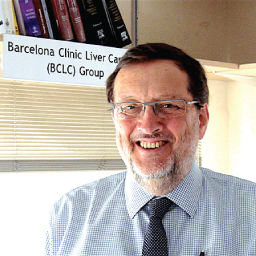
Jordi Bruix is Professor of Medicine at the University of Barcelona and Director of the Barcelona Clinic Liver Cancer Group.
He has been principal investigator of studies and clinical trials that have changed practice in the field of HCC, this including development of diagnostic criteria and prognostic models, and establishing chemoembolization, sorafenib and regorafenib as conventional therapy. He has developed and sequentially updated the BCLC staging and treatment strategy that has been endorsed by several international scientific associations to guide management of patients with HCC. He has authored more than 300 peer reviewed manuscripts and Evidence-based Practice Guidelines for Hepatocellular Carcinoma at EASL, AASLD and WGO.
What can our delegates expect to take away from your presentation ( Lessons learned from systemic therapy clinical trials )?
Positive or negative, clinical trials always add to our knowledge of liver cancer. They are instrumental for the design and proper understanding of future trial results and for optimal clinical management.
Why should people register for this event?
No validated surrogate parameters of survival exist for HCC. Therapeutic research is thus key to understanding the value and vulnerability of currently used or proposed endpoints.
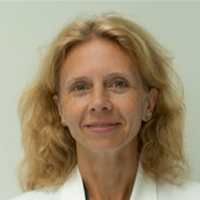 Lorenza Rimassa graduated at the Medical School of the University of Milan (Italy) in 1993. Her post-graduate education continued with a Medical Oncology degree, achieved in 1997. She worked at the San Raffaele Institute and at the National Cancer Institute in Milan, as clinical and research fellow. Since 1998 she is working at Humanitas Cancer Center, Humanitas Research Hospital – IRCCS, in Milan. She is Deputy Director of the Medical Oncology Unit and Head of the Gastrointestinal Oncology Section.
Lorenza Rimassa graduated at the Medical School of the University of Milan (Italy) in 1993. Her post-graduate education continued with a Medical Oncology degree, achieved in 1997. She worked at the San Raffaele Institute and at the National Cancer Institute in Milan, as clinical and research fellow. Since 1998 she is working at Humanitas Cancer Center, Humanitas Research Hospital – IRCCS, in Milan. She is Deputy Director of the Medical Oncology Unit and Head of the Gastrointestinal Oncology Section.
Since October 2019 she is Associate Professor of Medical Oncology at Humanitas University.
She is a member of the Italian Association of Medical Oncology (AIOM), of the European Society for Medical Oncology (ESMO), of the American Society of Clinical Oncology (ASCO), of the European Association for the Study of the Liver (EASL), of the International Liver Cancer Association (ILCA).
What can our delegates expect to take away from the session you will chair (Round Table: Clinical trial design for systemic disease) and from your presentation Basket trials and molecular-based enriched populations?
The session “Clinical trial design for systemic disease” will address the different types of clinical trial designs for unresectable HCC. Which are the best designs to evaluate a new treatment, which are the best designs to meet the predefined endpoints, which are the most appropriate endpoints in the different settings as first-line, second-line, and beyond.
The presentation “Basket trials and molecular-based enriched populations” will address the design of basket trials and the advantages of the enrollment of molecular-based enriched populations with different cancer types in a single trial. With many HCC patients also suffering from an underlying liver cirrhosis, so what are the advantages to enrolling molecular-based enriched populations with different cancer types in the same trial?
Why should people register for this event?
From novel therapies and approaches to novel clinical trial designs, endpoints, therapeutic targets, and biomarkers; This conference will highlight the key open issues and future perspectives for patients with HCC.
 Dr Singal is a Professor of Medicine and serves as Medical Director of the Liver Tumor Program and Chief of Hepatology at UT Southwestern Medical Center.
Dr Singal is a Professor of Medicine and serves as Medical Director of the Liver Tumor Program and Chief of Hepatology at UT Southwestern Medical Center.
He has obtained independent NIH funding, DOD funding, and state-level funding examining the HCC care continuum, ranging from HCC prevention to screening and early detection to treatment and survivorship. Dr. Singal has published over 200 scientific papers regarding HCC screening and treatment. For his work, he has been awarded the David Bruton Professorship in Clinical Cancer Research and Blue Faery Award for Excellence in Liver Cancer Research.
What can our delegates expect to take away from the session you will chair (State of Art Lecture)?
How can we target immunomodulatory pathways to boost cancer prevention and treatment strategies? Let’s discuss during the State of Art Lecture.
Why should people register for the event?
The leaders in the field of HCC will be discussing the most recent advances in HCC prevention, risk stratification, and treatment. How will these changes impact clinical trial design in HCC research? A must for clinicians and investigators interested in HCC.
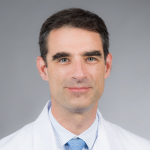 Christian Toso MD, PhD received his medical degree from the University of Geneva, Switzerland in 1997. After a general surgery training in Switzerland, he underwent a clinical hepato-bilio-pancreatic and transplant surgery fellowship at the University of Alberta in Edmonton, Canada.
Christian Toso MD, PhD received his medical degree from the University of Geneva, Switzerland in 1997. After a general surgery training in Switzerland, he underwent a clinical hepato-bilio-pancreatic and transplant surgery fellowship at the University of Alberta in Edmonton, Canada.
In 2008, he obtained a PhD in immunology and surgical research from the same institution. Since 2009, he has been working as a staff surgeon at the Geneva University Hospitals, currently as a full Professor, Chief of the Division of abdominal surgery.
What can our delegates expect to take away from the session you will chair (Overview of the joint EASL-AASLD symposium)?
We will explore clinical trial design and endpoints in HCC giving you an overview of the meeting.
Why should people register for the event?
Register for this unique meeting, designed to not only define current state-of-the-art practice, but also to explore emerging strategies and to suggest the way the next key trials should be designed.
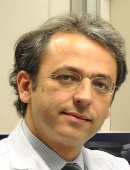 Josep M. Llovet is Founder and Director of the Liver Cancer Program and Full Professor of Medicine at the Mount Sinai School of Medicine, New York University (USA), and Professor of Research-ICREA in the BCLC Group, Liver Unit, IDIBAPS-Hospital Clínic, University of Barcelona. Professor Llovet obtained his degree in Medicine and Surgery from the University of Barcelona in 1986 and his PhD from the Autonomous University of Barcelona in 1995.
Josep M. Llovet is Founder and Director of the Liver Cancer Program and Full Professor of Medicine at the Mount Sinai School of Medicine, New York University (USA), and Professor of Research-ICREA in the BCLC Group, Liver Unit, IDIBAPS-Hospital Clínic, University of Barcelona. Professor Llovet obtained his degree in Medicine and Surgery from the University of Barcelona in 1986 and his PhD from the Autonomous University of Barcelona in 1995.
Professor Llovet has been President, Secretary and Founder of the International Liver Cancer Association (ILCA) and Chairman of the European Clinical Practice Guidelines of management of liver cancer (EASL-EORTC).
What can our delegates expect to take away from the session you will chair (State of the Art Clinic) and from your presentation ( Clinical trial design - outcomes, surrogates for overall survival )?
We expect a thorough overview and up-date on the status of clinical research on molecularly-driven trials. These trials can be either using biomarkers for enrichment of patient populations, or conventional trials stratified by biomarkers, and finally basket trials. The latter include clinical investigations where multiple arms are used based upon tumor molecular profiles, or alternatively multiple tumor types are tested with a common oncogenic mutation.
Because around 25% of HCC have at least one actionable mutation, and that so far just one drug has been approved based on trial enrichment (ramucirumab enriched by AFP > 400ng/ml in second line advanced HCC), it is of utmost interest to understand the current status and prospects of this approach, which has been pivotal in the approval of more than 30 drugs in clinical oncology.
Why should people register for the event?
The EASL-AASLD HCC Endpoints 2021 meeting is one of a kind. It is a unique and unprecedented effort to define the important concept of trial design in HCC. In this fast-evolving field it is of paramount importance to frame the critical questions, target populations and define conventional and alternative endpoints. I envision this meeting having relevant impact in the field very soon.
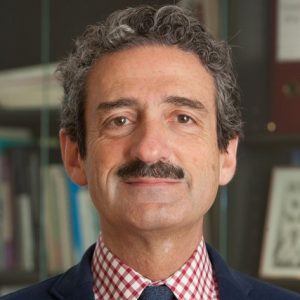 Bruno Sangro is Director of the Liver Unit at Clinica Universidad de Navarra, Professor of Internal Medicine at the University of Navarra School of Medicine, and senior researcher in the National Biomedical Research Network Center for Liver and Digestive Diseases (CIBEREHD). He is currently Coordinator of the Area for Digestive and Metabolic Diseases at the Navarra Institute for Health Research and Coordinator of the Oncology Program at CIBEREHD.
Bruno Sangro is Director of the Liver Unit at Clinica Universidad de Navarra, Professor of Internal Medicine at the University of Navarra School of Medicine, and senior researcher in the National Biomedical Research Network Center for Liver and Digestive Diseases (CIBEREHD). He is currently Coordinator of the Area for Digestive and Metabolic Diseases at the Navarra Institute for Health Research and Coordinator of the Oncology Program at CIBEREHD.
His translational and clinical research has mainly focused on liver cancer, with a high priority on therapeutic innovation.
What can our delegates expect to take away from the session you will chair ( Impact of safety profile and radiological response on patient outcomes )?
Obtaining benefit from any cancer treatment requires a fair balance between what therapy does to the tumor and what it does to the host. It is important to think about and eventually define valuable endpoints regarding tumor response, treatment toxicity and patient reported outcomes.
Why should people register for the event?
Whether your main interest is clinical care or clinical research, if you feel that endpoints in the management of HCC patients are outdated, equivocal or should be better defined, you should attend this EASL-AASLD event.
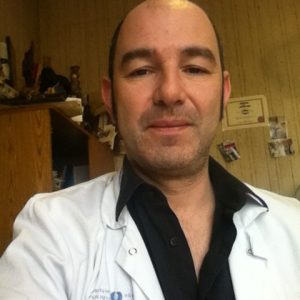 Pierre Nahon’s research interests focus on the complications of cirrhosis, in particular hepatocellular carcinoma. He is the Scientific Coordinator of the French National Agency for Research on AIDS and Viral Hepatitis CO12 CirVir cohort, which is a prospective follow-up of nearly 1800 patients with compensated viral cirrhosis in 35 centres across France. This cohort allowed the achievement of numerous publications since 2015 in major international journals such as Journal of Hepatology, Hepatology, Gut and Gastroenterology. Professor Nahon is also the co-Coordinator of a GWAs within the Genetic work package of the French Hepatocellular Carcinoma Multi-technological Project (HECAM).
Pierre Nahon’s research interests focus on the complications of cirrhosis, in particular hepatocellular carcinoma. He is the Scientific Coordinator of the French National Agency for Research on AIDS and Viral Hepatitis CO12 CirVir cohort, which is a prospective follow-up of nearly 1800 patients with compensated viral cirrhosis in 35 centres across France. This cohort allowed the achievement of numerous publications since 2015 in major international journals such as Journal of Hepatology, Hepatology, Gut and Gastroenterology. Professor Nahon is also the co-Coordinator of a GWAs within the Genetic work package of the French Hepatocellular Carcinoma Multi-technological Project (HECAM).
He is an ad hoc reviewer for numerous other scientific journals including Lancet Gastroenterology and Hepatology, Gastroenterology, Gut, Hepatology, Cancer Research, Annals of Oncology and Carcinogenesis.
What can our delegates expect to take away from your presentation ( Clinical trial design in HCC primary prevention: target population, outcome, surrogates endpoints for overall survival )?
Trials for HCC primary prevention face major pitfalls such as long time or large samples required to meet primary endpoints.
Why should people register for the event?
Attending the meeting will provide leads and foster discussion to overcome these limitations. These live interactions will pave the way for optimizing trials design in this field of research and ensure their success.

